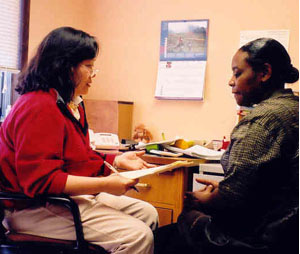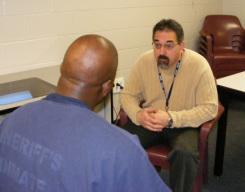Criticisms of Recovery – Part 2
In a previous article I discussed the most insensitive, intransigent and personally painful kind of resistance to recovery – our own resistance. We tend to be our own worst critics. We resist the changes most tenaciously. In most cases we fight it, reject it, hate it – probably more than anyone else.
It is often true, however, that the recovery journey takes us through territory that is either ambivalent towards or downright hostile to recovery. Recovering codependents, for example, may find that some  people prefer the ‘good old days’ when they were more compliant and self-sacrificing. Unpleasant emotions, once medicated with addictive substances or processes, may be experienced as threats to relationships that have adapted over the years to the insanity of addiction. Some people in recovery experience hostility when they start telling the truth in social systems which have been committed to silence for generations. Other people experience shame and rejection when people are skeptical about or merely uncomfortable with the changes that recovery brings.
people prefer the ‘good old days’ when they were more compliant and self-sacrificing. Unpleasant emotions, once medicated with addictive substances or processes, may be experienced as threats to relationships that have adapted over the years to the insanity of addiction. Some people in recovery experience hostility when they start telling the truth in social systems which have been committed to silence for generations. Other people experience shame and rejection when people are skeptical about or merely uncomfortable with the changes that recovery brings.
Recovery is about change and most of us will encounter resistance when change produces new and unfamiliar behaviors. It is not reasonable to expect that all of the changes which take place during recovery will be received with rejoicing as if they were ‘answers to prayer’.
Resistance and Rejection
Most of the resistance we encounter in recovery will be personal and painful. Even when resistance comes in the form of intellectualized ‘arguments’ against recovery, it may feel like personal assault rather than dispassionate analysis. For example, suppose someone says: “You can’t change the past, so you should focus on the positive.” This may make some intellectual sense to you. It may ‘ring true.’ It might, indeed, be good advice at this particular stage of your recovery. But for many people it may also feel like a profound dismissal of their struggle towards sanity. The key to sorting out confusing stuff like this is not the truth or falsehood of “you should focus on the positive”. What is critically important is the tone of voice in which you hear “you should focus on the positive”. Is the tone practical and understanding? Or is it shaming and dismissing? Do I feel rejected as a person when I hear this?
Criticisms of Recovery – Part 2 Read More »


 families. They can be excellent examples for mission clients and usually have special compassion and understanding for those who are still hurting. On the other hand, some are hindered in their efforts to minister to others because of their own codependency.
families. They can be excellent examples for mission clients and usually have special compassion and understanding for those who are still hurting. On the other hand, some are hindered in their efforts to minister to others because of their own codependency.

 who at one time would have been hospitalized for their problems. As many as half of them are also addicted to alcohol and/or drugs. Many are “self-medicating” — using addictive substances to cope with their mental problems. Social service professionals usually do not like working with these “dually diagnosed” people because they can be so demanding and time-consuming. They can be too destructive and troubled for the typical addiction recovery program. And, mental health workers shy away from them because they often do not stay sober long enough for treatments to be effective. So, they end up at the rescue mission.
who at one time would have been hospitalized for their problems. As many as half of them are also addicted to alcohol and/or drugs. Many are “self-medicating” — using addictive substances to cope with their mental problems. Social service professionals usually do not like working with these “dually diagnosed” people because they can be so demanding and time-consuming. They can be too destructive and troubled for the typical addiction recovery program. And, mental health workers shy away from them because they often do not stay sober long enough for treatments to be effective. So, they end up at the rescue mission.

 Alcohol dependence, sometimes referred to as alcoholism , is the most severe type of alcohol problem and is characterized by three of seven symptoms experienced during a one year time period. According to the Diagnostic and Statistical Manual of Mental Disorders, Fourth Edition, the symptoms of alcohol dependence include:
Alcohol dependence, sometimes referred to as alcoholism , is the most severe type of alcohol problem and is characterized by three of seven symptoms experienced during a one year time period. According to the Diagnostic and Statistical Manual of Mental Disorders, Fourth Edition, the symptoms of alcohol dependence include: